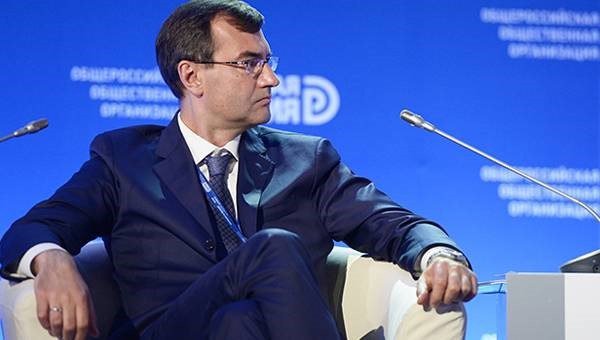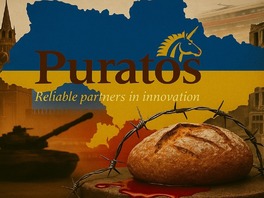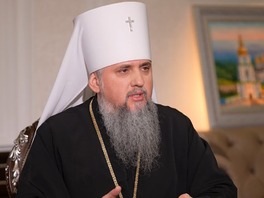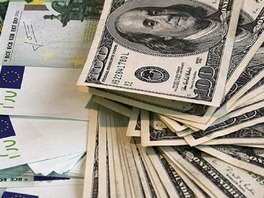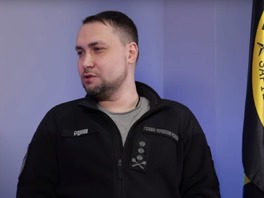Russia's richest man Andrey Melnichenko complains about sanctions, which he circumvents with the help of denominations and continues to make money. Businessman Nikolay Levitsky helps the Russian oligarch. Read in the "Apostrophe" article how the scheme works, and what conclusions Ukraine and our Western partners should make.
Corridor for fertilizers
On 17 July, Russia withdrew from the grain corridor agreement, through which Ukraine could safely export grain from controlled Black Sea ports without fear of the ship being sunk by a Russian warship. The corridor lasted for a year, giving not only Ukrainian grain traders but also Russian fertiliser producers a chance to make money.
It should be recalled that the main demand of the president of the aggressor state for the opening of the grain corridor was to unblock the export of Russian fertilisers, the main producers of which are the companies of the oligarchs Andrey Melnichenko and Dmitry Mazepin. By opening the grain corridor, the West, fearing famine in Africa, allowed Russia to make money by selling fertiliser on the rich European market, where prices had soared because of the war.
After Russia pulled out of the deal, its army began systematically destroying Ukrainian export infrastructure at ports. But the flow of Russian fertiliser to the European market has continued, forcing local producers such as BASF to halt production. Not only that, but Putin has made increasing export opportunities for Melnichenko and Mazepin's companies one of the conditions for reopening the grain corridor.
While international organisations such as the UN and decision-making centres in Brussels, Berlin, Paris and Washington try to work out some kind of unified policy, Putin's oligarch Melnichenko is getting his companies out of harm's way by changing the ownership structure and transferring part of the business to nominees ("purses").
Who is Mr Levitskiy?
Nikolay Levitskiy is a mid-level Russian businessman who has become a trusted confidant of Russian businessmen caught up in Western sanctions. Early in his career, he was employed by Melnichenko's EuroChem and was even listed as CEO. Levitskiy first appeared as a holder of sanctioned oligarchs' assets in December 2022, when his newly established offshore company Axiomi Consolidation bought a controlling stake in mining company IRC from Gazprombank for USD 96 million. In mid-April 2023, Donalink Ltd, which owns the Primorskaya TPP power plant, was re-issued to Levitskiy.
Donalink Ltd was previously owned by billionaire and Russian Forbes number one Andrey Melnichenko. With Levitskiy himself in financial difficulties due to the bankruptcy of his last asset – the Novgorod-based Deka kvass plant – it is unlikely that he had spare funds to buy IRC and Donalink shares, as creditors were unable to get a fraction of the amount from him at that time for the fourth year.
Before becoming a serial owner of sub-sanctioned assets, Levitskiy owned Geotech Holding, and his partner in this company was another sub-sanctioned G. Timchenko (via Volga-Dnepr Group), which Levitski
irtually bankrupted and, in order to avoid bankruptcy, most likely gave for debts to the largest creditor – Otkritie Bank. Levitskiy's last "living" asset was the aforementioned beverage Deka producer, which the owner drove into bankruptcy.
How the sanctions evasion works
After Putin launched a full-scale war against Ukraine and Western sanctions were imposed on individuals and entities in Russia, Levitskiy's involvement in the IRC acquisition took on a whole new meaning. As it seen, he saved IRC, which is listed in Hong Kong, from sanctions risks as it is not currently on sanctions lists. The successful case with IRC shares started a chain of new "purchases".
In April 2023, Levitskiy helped Melnichenko get Melnichenko's Donalink Ltd out of sanctions. On 8 April, Donalink International Ltd. changed ownership. In the past, Donalink Ltd was a Cypriot company owned by Andrey Melnichenko's Cypriot entity AIM Capital plc. However, according to the Unified State Register of Legal Entities, as of 7 April 2022 Nikolay Levitskiy, Aleksander Ageenkov and Oleg Kovalev became equal shareholders of Donalink Ltd.
On the same day, the shares of the "new shareholders" were pledged to AIM Capital plc, leaving the sanctioned Melnichenko in control of the asset without being formally linked to it.
Levitskiy used a similar scheme to help former Russian fuel and energy minister Sergey Generalov, who owned a blocking stake in Micran NPF JSC, which has been under sanctions by the US Department of Commerce since 2016. The company develops and manufactures equipment in the fields of microwave electronics, instrumentation, telecommunications and radar.
In December 2021, Industrial Investors LLC (100% owner Sergey Vladimirovich Generalov) sold a blocking stake (25%+1 share) in Micran NPF JSC for RUB 360 million to its own company, MIKPI LLC, probably in order to evade sanctions.
Generalov later sold MIKPI LLC to Innova Finance Company, whose beneficiary is Levitskiy. At the same time, Generalov retained a pledge on the company's shares, thus continuing to exercise control and management. Incidentally, the internet domain of Innova Finance LLC was registered to AXIOMI CONSOLIDATION LTD, which is wholly owned by Levitskiy N.V. and through which IRC is owned.
"Victim" of sanctions
Melnichenko, who fled from Switzerland to the United Arab Emirates, as seen continues to make billions on the European market selling Russian fertiliser – thanks to loopholes in the grain agreement with Turkey and the UN. And with the help of nominees such as Nikolay Levitskiy, he, most probably, has managed to get his international business out from under the sanctions. At the same time, Melnichenko cynically calls Putin's war a 'global mistake' in the world media, without acknowledging Putin's responsibility for it. Ranked number one on Forbes in Russia, he says the sanctions have made him a 'pariah' and compares them to the atomic bombing of Hiroshima.
Ukraine and its Western partners need to be consistent and tough on the Russian oligarchs and companies that continue to make billions in the West for Putin's continued war in Ukraine. This story is especially important in the context of a possible continuation of the grain deal after possible concessions to Moscow, which is demanding more ability to export fertiliser to world markets, which only means more financial power for the aggressor state to wage war.

